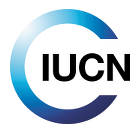We were recently quoted in the Guardian regarding the launch of TripAdvisors new ‘no-touch’ wildlife tourism initiative.
Our quote was brief so we wanted to expand on it. Here’s why we think that this is a welcome and commendable move from TripAdvisor:
Many governments in charge of regulating burgeoning wildlife tourism industries find themselves in catch-up mode, often under-resourced and failing to keep the impact of tourists on a species at a sustainable level. As such in many of these countries it’s left up to the industry to regulate themselves.
When the pressure is on the operators to ‘tick the [insert iconic species] box’ for their customers, cooperative self-regulation within the industry is a big ask. So often guest pressure is self-inflicted due to marketing ploys like guaranteeing sightings and then this in turn is amplified by excited but uninformed tourists with unrealistic expectations. For those operators that do look to stand apart from the crowd by offering a more conscientious approach, their efforts are often not publicly recognised or indeed they are rendered inconsequential on the day by the actions of others pursuing the same animal.
We see this move by TripAdvisor as a positive step forward. Not only will it educate the guests at the point of booking (crucially before they set foot in their chosen destination), but it will also allow them to make an informed and public judgement of their excursion experience.
Hopefully due to the educational tools provided, the tourists rating of an excursion will be based on a new-found knowledge and reverence for the species they seek to encounter. If so it will challenge the tour operators to match these expectations with safe, informative excursions that minimise their impact on the target species.
In their bid for positive online reviews companies will hopefully look to seek advice on best practices from their government (feedback that will bolster the case for more government input) and all-to-willing conservation NGO’s like MWSRP to improve their standards and match or exceed the expectations of their guests.
If the advice regarding best practice is consistent and standardised across the industry, then this could really give countries in catch-up mode a much needed push towards achieving full regulation, or at least an effective form of self-regulation of their wildlife tourism industries.
There’s no doubt that TripAdvisor has the scale to facilitate this initiative, but it’s size will also be significant in other ways. Best practices vary enormously for species in different regions. It would be fantastic if regional NGO’s and governments could have input on the materials, tailoring the message to fit the encounter environment.
We also hope that data relating to the TripAdvisor tools and reviews can be made available to make meaningful comparison between industries targeting the same species. This would further incentivise government and industry participation in improving their position in the ‘world rankings’, driving the global standard of wildlife tourism higher.


